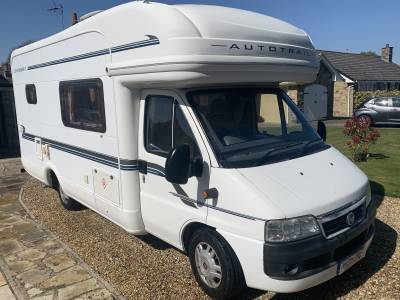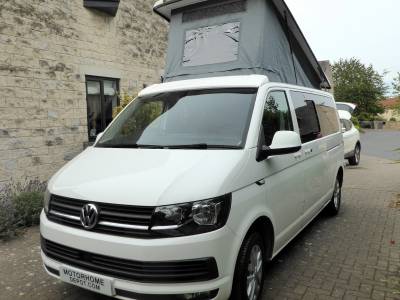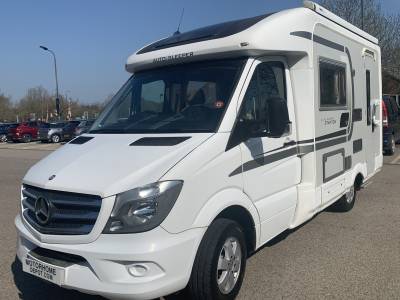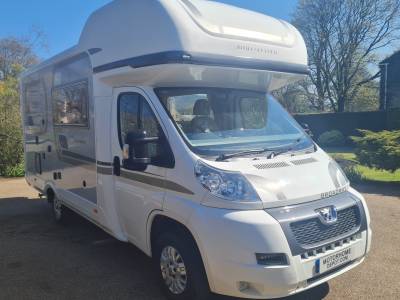Motorhomes For Sale Near Me
Looking to buy a motorhome in your local area? We are the local specialists and offer a wide range of motorhomes across a range of sizes and prices. We have motorhomes for sale in Skipton, Masham, Ripon and Thirsk. We offer campervans in Harrogate, Boroughbridge, Easingwold, Knaresborough and Stamford Bridge. Check out our range of motorhomes in York, Wetherby and Tadcaster.
York is a cathedral city and unitary authority area, at the confluence of the rivers Ouse and Foss, in England. The city has long-standing buildings and structures, such as a minster, castle and ancient city walls.
It is the county town of historic Yorkshire and was a county corporate, outside of the county's council and the ridings. City of York Council is a unitary authority responsible for providing all local services and facilities throughout the city and rural areas around the outside of the old city boundaries. The city is in ceremonial North Yorkshire and a non-constituent member of the Leeds city region.
The city was founded by the Romans as Eboracum in 71 AD. It became the capital of the Roman province of Britannia Inferior, and later of the kingdoms of Deira, Northumbria and Jórvík. In the Middle Ages, York grew as a major wool-trading centre and became the capital of the northern ecclesiastical province of the Church of England, a role it has retained.[6] In the 19th century, York became a major hub of the railway network and a confectionery manufacturing centre, a status it maintained well into the 20th century. During the Second World War, York was bombed as part of the Baedeker Blitz; although less affected by bombing than other northern cities, several historic buildings were gutted and restoration efforts continued into the 1960s.[7]
The city had a population of 153,717 in the 2011 census[8] and is in the Yorkshire and the Humber region. The unitary authority district, governed from the city, had a mid-2019 est. population of 210,618, the 87th most populous district in England.
Skipton (also known as Skipton-in-Craven) is a market town and civil parish in the Craven district of North Yorkshire, England. Historically in the East Division of Staincliffe Wapentake in the West Riding of Yorkshire, it is on the River Aire and the Leeds and Liverpool Canal to the south of the Yorkshire Dales. It is situated 27 miles (43 km) north-west of Leeds and 38 miles (61 km) west of York. At the 2011 Census, the population was 14,623.[1]
The town was listed in the 2018 Sunday Times report on Best Places to Live in northern England.[2] The name Skipton means 'sheep-town', a northern dialect form of Shipton.[3] The name is recorded in the Domesday Book of 1086. It was important during the English Civil War and was the site of prisoner of war camps during the First and Second World Wars.
Skipton Castle was built in 1090 as a wooden motte-and-bailey by Robert de Romille, a Norman baron. In the 12th century William le Gros strengthened it with a stone keep to repel attacks from the Kingdom of Scotland to the north,[4] the castle elevated Skipton from a poor dependent village to a burgh administered by a reeve. The protection offered by Skipton Castle during the Middle Ages encouraged the urbanisation of the surrounding area, and during times of war and disorder the town attracted an influx of families. It is now one of the most complete and best preserved medieval castles in England and is open to the public.
One of the oldest mills in North Yorkshire, High Corn Mill[5] is powered by the waters of Eller Beck, and dates to 1310 when it was owned by Robert de Clifford, 1st Baron de Clifford; at that point it was transferred to the powerful Clifford family by the then King Edward II.[6] The mill as it appears today is only half of what used to exist when two mills were in operation to produce corn for the whole of Skipton. The mill has been completely redesigned, from the mill grounds to the buildings themselves. The outside walls of the mill have been sandblasted and the two main buildings of the old mill have been turned into flats from 2007 onwards, with one stand-alone building yet to be redesigned, touched or sandblasted.
Skipton became a prosperous market town, trading sheep and woollen goods: its name derives from the Old English sceap (sheep) and tun (town or village).[7] A market stemming from its formative years still survives. In the 19th century, Skipton emerged as a small mill town connected to the major cities by the Leeds and Liverpool Canal and its branch Thanet Canal, (known locally as 'Springs branch canal'), but during the 20th century Skipton's economy shifted to tourism, aided by its historic architecture and proximity to the Yorkshire Dales. Since 1974, Skipton has been the seat of Craven District Council. The Skipton Building Society was founded in the town. In 2016 Skipton was voted the best place to live in England for the second time, having been voted for by the Sunday Times, two years earlier.
The little city that packs a big punch. Ripon, in Yorkshire, is a cathedral city steeped in history and home to magnificent historical buildings and long observed traditions. You will find a trio of award winning museums and a gothic cathedral that dates back to the 7th century that are waiting to feed enquiring minds
With a thriving market place and a magnificent cathedral, this busy little city will earn a place in any visitor’s heart. Reaching out from the market square are small streets and snickets that are home to the eclectic and specialist shops for which Ripon is so loved. Amongst them are cafes and pubs, offering refreshment and home cooked food throughout the day.
This city’s history is entwined with the church, both due to the cathedral in Ripon city centre and its proximity to the nearby Fountains Abbey.
Ripon also boasts an outstanding racecourse, a glorious stately home, a magnificent abbey and popular theme park. There are always great things to do in Ripon.
The growth of the city through trade and manufacturing led to the building of a canal to link it to the navigable parts of the River Ure. Today this makes Ripon a delightful city to explore, with riverside and canal side walks that reach into the countryside and buildings that span the last thousand years.
Boroughbridge, North Yorkshire has a thriving High Street with inviting cafes, shops, pubs and restaurants. With architecture and an air that sets it apart from the rest of the district, this town is a treat to explore and discover.
The pretty cobbled Hall Square was once the home of fishermen; today you will find the Butter Market Museum, an eclectic display of local artefacts, showing the history of the town’s people.
Away from the Dales, Boroughbridge is on the edge of the Vale of York. Where the hills are gentle and the patchwork of wheat fields and working farmland is lined with hedgerows that teem with wildlife. This area is a more gentle countryside compared to the rugged hills of North Yorkshire’s two national parks.
The canal and River Ure offer the perfect setting for tranquil walks and picnic spots, an afternoon’s fishing or a relaxing boat trip. There is plenty of family cycling thanks to the flat local terrain and relatively quiet roads and for the cross-country cyclist this gentle landscape means you can quickly cover a lot ground along the rolling bridleways.
Knaresborough is full of surprises, a warren of medieval streets and stone staircases that weave their way up and down the hill. The town centre is perched on the cliffs above the River Nidd and the imposing railway viaduct across the Nidd Gorge offers an amazing view to visitors as they arrive by train.
What’s best about Knaresborough?
There are plenty of things to do in Knaresborough all year round. The market place in the centre of the town offers a great place to enjoy a cup of tea or something delicious and home baked. On a Wednesday stalls fill the market place offering tasty produce, wholefoods, plants and flowers, as well as pretty much anything else you can imagine, in the ever-popular Knaresborough Market.
At the base of the cliffs on which the town sits, you will find a delightful promenade that traps the sun in summer, with a coastal feel despite being more than 60 miles from the sea making a great place to enjoy an ice-cream or indulge in the tradition English pastime of ‘simply mucking about in boats’.
Discover Wetherby
This Award Winning Floral Market Town has many treasures to explore including panoramic scenery and historic architecture.
Wetherby’s origins are as a staging post for travellers through the centuries between Edinburgh and London, and right next to the recently widened A1(M), it’s still an excellent place to spend a while if you’re travelling North or South.
Now it has developed into a busy market town, and still retains its Thursday Market, granted by Royal Charter in 1240.
For fans of the Sport of Kings (horse racing to the rest of us!) Wetherby also has a fine racecourse, famous for it’s National Hunt (jumps) racing, which also in recent years has added flat racing through the summer too.






































